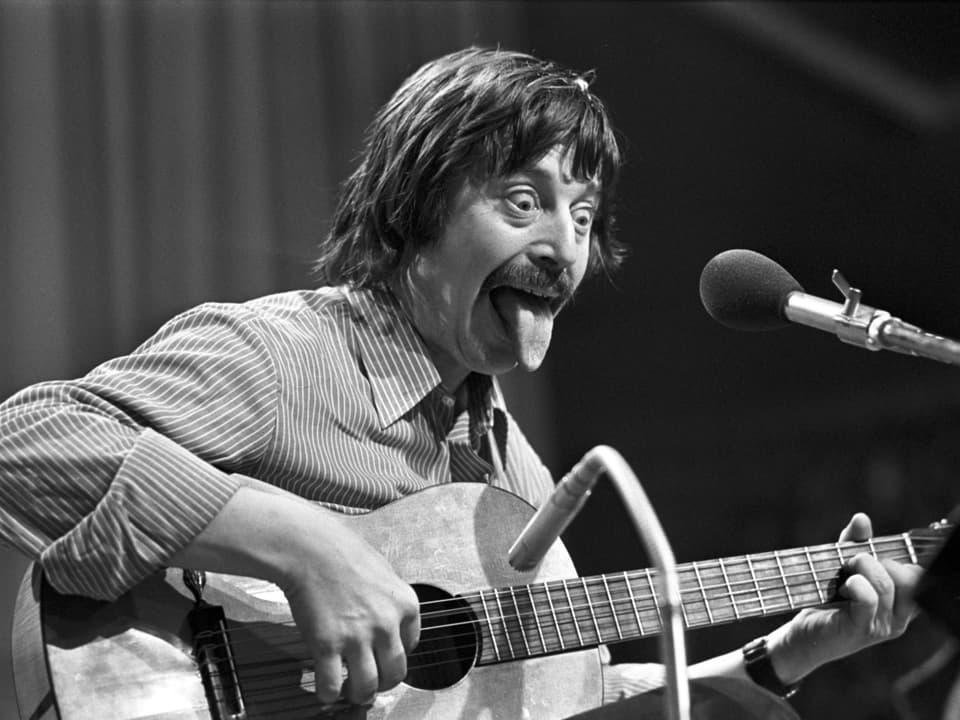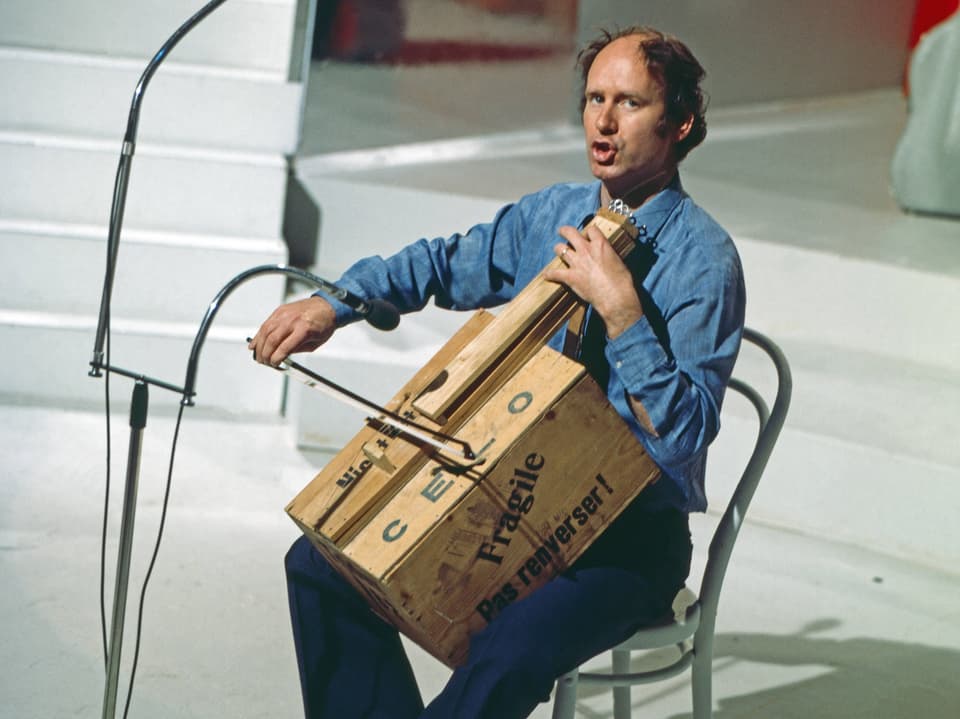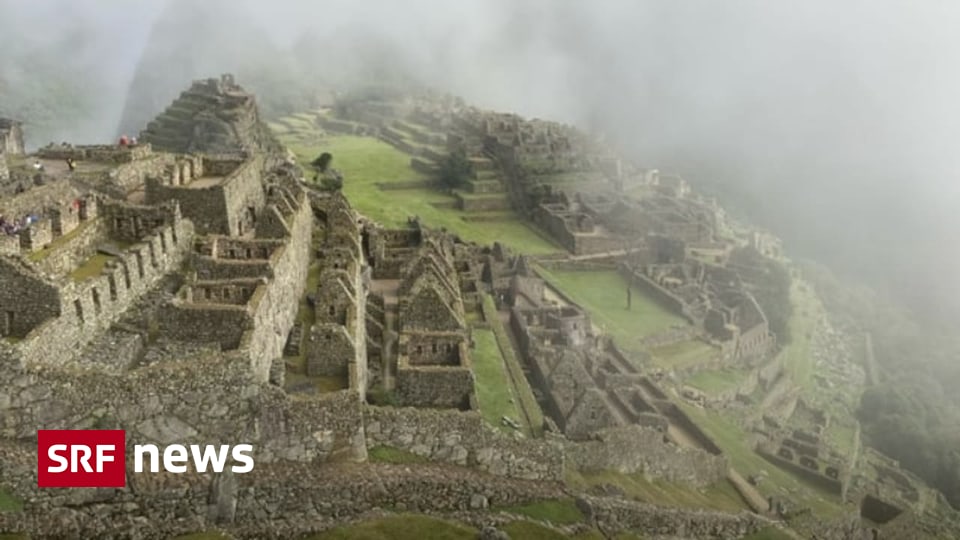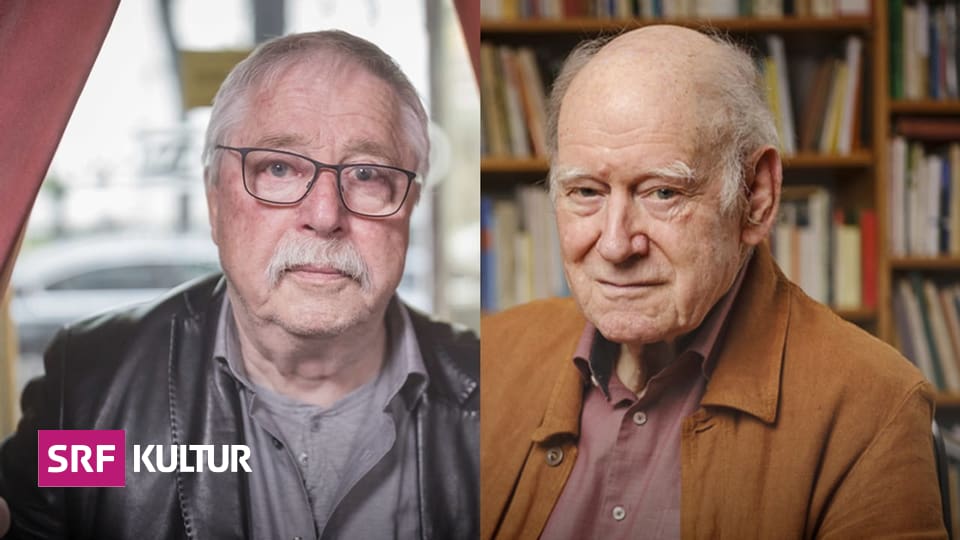Old friends Wolf Berman and Franz Höhler met for two sold-out public lectures at the Republic Theater. It was about poems, songs, influences, ways of thinking, things that are current and timeless, and crucial insight.
In the end it is the same as always. Wolf Berman sits on stage and sings his encore. Encouragement, one of his most successful works, was written more than half a century ago by the persecuted German Democratic Republic poet Peter Hochel:
Hey, don’t let yourself get hardened
In these difficult times
Those that are too hard will break
Those whose bite is very sharp
And it was cut off immediately
And it stopped immediately..
Timeless, this text. And current. Because Berman says that although he stands in solidarity with Israel, he also sings this song for the Palestinians. “So they can defend themselves against their worst oppressors, Hamas.”
Two bridge builders
Franz Hohler sits next to Wolf Biermann. They spent an evening together and talked about their friendship. Friendship that served as a bridge between East and West at a time when the world was divided into two parts.
legend:
The German Democratic Republic was a thorn in Berman’s side, but the poet was on his side: his poetry collections are among the best-selling German literature of the postwar period.
Keystone/DPA/Bernd von Gurchenka
The two met in 1969. Wolf Biermann lived in East Berlin. His art was banned and then also there. Franz Hohler came as a radio journalist and asked questions like “Were you a good student?” Or “Can you swim?” A laugh that evening at Rigiblick when Franz Höhler made the recording, as was Wolf Biermann’s cheeky remark “What kind of questions are these?”
Through the channel and the poet
But the questions weren’t that bad. Because swimming actually plays a role in Berman’s life. In 1943, during the night of the Hamburg bombings, when the entire city burned and more than 30,000 people died, Wolf Biermann swam across the Channel on his mother’s back. In public. That’s how he survived. That’s what shaped him, he says. This is what made him a poet and led him to the German Democratic Republic.

legend:
Born in Hamburg, Wolf Biermann moved to the German Democratic Republic in 1953 as a young communist. His performances created a mood – among the audience, but also in politics.
Keystone/DPA/Wilhelm Bertram
This evening revolved mainly around printmaking and the question of how printmaking affects poetry. This is particularly impressive in Berman’s translation of Shakespeare’s famous Sonnet 66. The poet describes the badness of the world in 12 lines and concludes that he would rather die than endure this world any longer. But then come the last two lines, which Berman translates as:
I was tired of all this, and I would rather die, so I left
Do not let me down, my dear, in this world.
“It blew my mind,” Wolf Berman says onstage, alluding to the fact that in this sonnet human life is more important than the idea. This is not Marxist.
An unforgettable moment
“Marxists have always wanted only to save humanity. She was never interested in the individual human specimen. Franz Höhler, who as a Swiss had a completely different background than himself, did not have to explain the importance of love for the individual. He knew that too.

legend:
From the “Totemügerli” to the fall of Zurich: Franz Höhler’s stories often end disastrously. His performance in front of an audience was completely different: here in a 1976 show.
IMAGO/United Archives
A powerful moment on the Rigiblick stage. An important insight for the former communist. There were probably one or two of them in the room. But anyway. At the end Wolf Berman sang his “encouragement” and ended with the following lines:
…. We don’t want to keep it quiet
In this time of silence
Green color bursts from the branches
We want to show this to everyone
Then they will know
Then they will know.

“Professional music expert. Creator. Student. Twitter aficionado. Unapologetic coffee trailblazer.”







More Stories
The role of GZSZ Zoe has a big secret
Melanie Weniger and Annina Frey: “It's like I'm winning the lottery”
Lucrative TV deal: Boris Becker allows himself to be chased through the woods